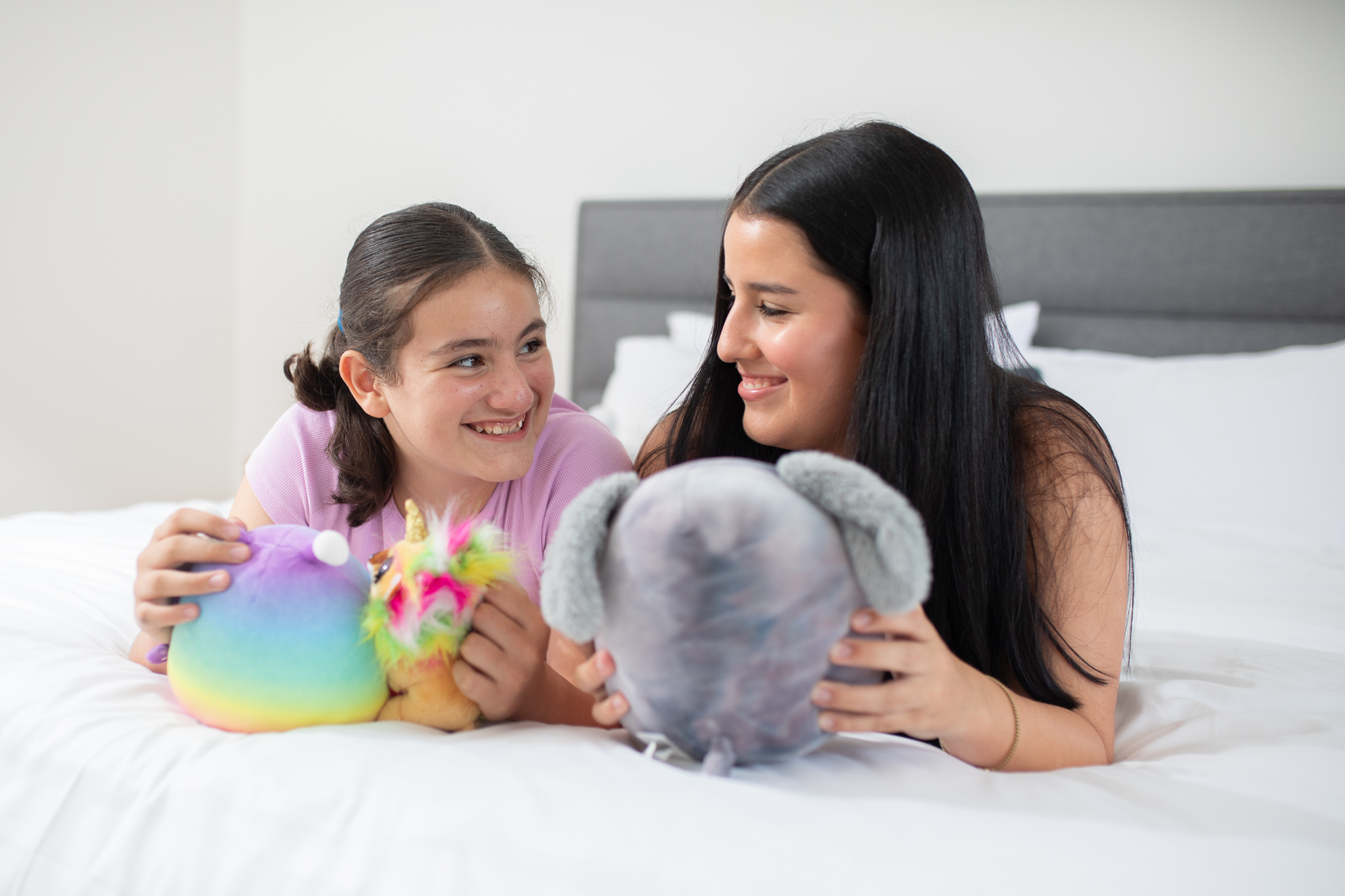Men’s health in the autism community

Content Warning: This post discusses mental health and suicide. You can find a list of support services at the bottom of this page.
This week is Men’s Health Week, which aims to encourage conversations and action around men’s health and wellbeing Australia-wide.
This is an especially important week for our community, where there can be additional barriers to health and wellbeing, whether that’s for autistic men or the fathers, brothers and men who support them.
Barriers to good health and wellbeing
Of course, we all want to be healthy, but for many of us, this is much easier said than done. For men in the autism community, there can be additional and unique barriers to accessing healthcare and maintaining good health and wellbeing independently.
For autistic men, there can be sensory, communication and social challenges that can inhibit health and wellbeing or cause seeking external support to be difficult. Organising health check-ups can be tricky because of executive functioning challenges, and sometimes healthcare professionals just don’t understand autism, leaving autistic people feeling unsupported. The unfamiliarity and unpredictability of appointments and procedures can be a cause of anxiety for people with autism, sometimes leading them to avoid healthcare settings altogether. Many autistic people also report experiencing sensory overload in healthcare settings, particularly hospitals.
For fathers, brothers and carers of autistic people, finding the time and energy to focus on their own health and wellbeing can feel impossible. The extra time and effort needed to care for an autistic person often means their own needs come last. However, the longer a person neglects their health and wellbeing, the more challenging it becomes for them to develop good habits, and the greater the likelihood that their health issues may worsen.
Understanding these barriers is an important first step to improving health and wellbeing. Recognising what stops you or a loved one from forming good habits or getting the support you need is crucial for tackling these challenges. Although these barriers can be frustrating and overwhelming, they can be overcome with good habits and by seeking support when needed.
We can see real-life examples of this in our documentary ‘DAD’, which features twelve dads from across Australia who share their experiences and advice about fatherhood with autistic children. This bonus footage clip, 'Coping', shares advice for the early days of bettering yourself, which is relevant to all men in our community:
Self-care strategies
Although it’s not a substitute for professional support, practising self-care can help maintain our health and wellbeing day-to-day. With good habits and routines already in place, self-care can help individuals and their families navigate challenging times more easily and resiliently. Here are some key self-care strategies that you should consider:
- Exercising regularly
- Getting enough sleep
- Eating well and staying hydrated
- Making time for relaxation
- Focus on positivity, such as identifying and challenging negative thoughts
- Connecting with other people regularly (e.g., family, friends, colleagues)
- Setting goals and priorities, both in the short and long term
- Practising gratitude: reflecting on what you have, are good at, and are grateful for
Self-care is different for everyone and needs to be tailored to your unique needs, abilities, and goals. For instance, if you're not exercising right now, you can start with a simple ten-minute walk each day, increasing your time walking as your fitness builds. Or, if you want to get better at setting goals and priorities, try writing them down, using apps, or reaching out to your support network to help you stay on track and focused.
Last year, during Men’s Health Week, we spoke to autistic actor and advocate Michael Theo about what self-care looks like for him. You can watch the full discussion below:
Connecting with others
Positive relationships and connections with others are essential for our wellbeing. Without supportive people to celebrate the good times and help us through the tough ones, our resilience is not as strong, and we're more likely to face health problems. Research has found that autistic people and their parents/carers often feel lonelier than the general population. Therefore, it’s even more important that men in the autism community prioritise forming relationships and connecting with others.
Here are some other suggestions for staying connected to others and forming new relationships:
Check-in regularly
Regularly checking in with our loved ones and the people around us is important for everyone's wellbeing. It doesn't have to be formal or planned—sometimes, a simple text message or a five-minute chat during your lunch break is all it takes for a meaningful check-in. However, if you prefer scheduled and planned catchups to spontaneous interactions or conversations, that’s okay, too.
When we check in with someone, we often ask, ‘How are you?’ But how often do we answer this question honestly? Many of us don’t feel comfortable or have the confidence to open up about how we’re feeling, especially about our mental health. If you’re not feeling great or sense the person you’re talking to isn’t, it’s worth trying to check in, ensuring you’re in a decent headspace to hear what they say.
Suicide prevention charity ‘R U OK?’ has information about identifying the signs of suicidality in men and how to start a conversation about mental health. They’ve also developed a guide to supporting neurodivergent people who might be struggling with their mental health or are at risk of self-harm or suicide.
Join a group, club or activity
Joining a club, group, or activity can be a fantastic way to meet people who share your passions and values. It also gives you a sense of purpose and belonging which is so important to our health and wellbeing. Whether this is a team sport, volunteering opportunity, interest-based club or men’s shed, as long as it helps you feel connected, it’s a win!
If you have recently received an autism diagnosis, connecting with other autistic individuals can greatly help in forming friendships with people who understand your experiences. Our community support page for autistic adults can help you find existing social groups for autistic people and tips for starting a group of your own.
For dads and carers of autistic people, connecting with other carers or autism parents can be very meaningful. Visit our community support page for parents/carers to learn about online support and face-to-face community groups in your area.
Social media and gaming
It’s good to know the benefits and risks of interacting with others online. It's important to use digital devices in moderation to avoid things like screen addiction and gaming addiction. Be selective about your online interactions to steer clear of cyberbullying or exploitation. Even passive use of digital devices, such as scrolling through social media without interacting with others, can lead to wasting hours and skipping physical exercise, in-person interactions, and other important tasks.
It's also important to consider the types of content you’re looking at online. Social media can encourage us to compare ourselves or our families to others, even though their lives might not be as perfect as they seem. Keep this in mind when using social media, and when it comes to your own posts and accounts, only share what you’re comfortable with.
Although the online world has its downsides, it can also be a great place to meet and connect with people who share your interests and views or find socialising face-to-face overwhelming. Discover our tips for online safety and safe gaming to ensure positive and enjoyable online interactions.
External support
Sometimes, getting outside support is the best way to tackle health or wellbeing issues. Regardless of what area of your health you need support with, or how ‘good’ or ‘bad’ you’re feeling, know that seeking help is a brave and important thing to do, not just for your own wellbeing, but for the people around you, too.
For autistic men, particularly those who are newly diagnosed, understanding what support options are available and which of these are actually beneficial can be overwhelming. Autism: What Next? contains free, evidence-based information about services and support options that autistic adults might find helpful.
Parents and carers of people with autism may also be eligible for a range of external and professional support options. This page on support for parents and carers explains how the NDIS can help your family and contains links to external services such as Carer Gateway.
Here are some additional support services for men and their loved ones:
- MensLine Australia: A national telephone line and online information, referral and counselling service that supports men experiencing family and relationship challenges. They also provide support with mental health, anger management and suicide prevention. You don’t need a referral from a GP to contact them.
- Dads in Distress (DID): A branch of the national organisation Parents Beyond Breakup (PBB), which supports families experiencing family breakdown and separation. They run a helpline for separated dads and face-to-face and online support groups. They also have a podcast, social media accounts, and other online services that offer free information.
- NSW Health: Provides a list of health and support services for men, most of which are available Australia-wide.
Your next steps
Supporting your health and wellbeing, or that of a loved one, takes empathy and compassion. Although you might not have all the answers for helping yourself or someone else, that doesn’t mean you can’t take steps towards improving or maintaining good health, no matter how small these steps might be.
For more information about men’s health and the autism community, you can visit the following links:






